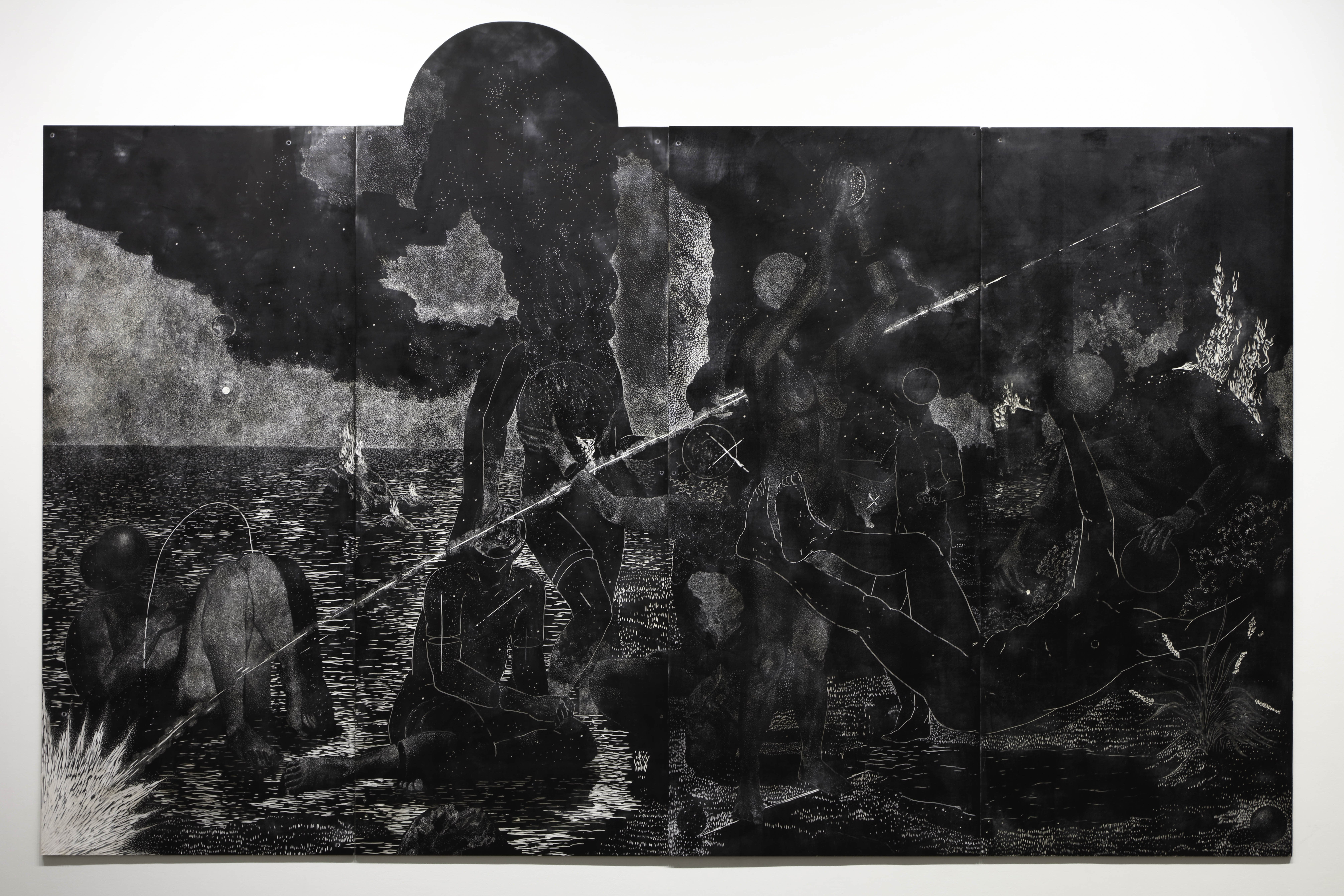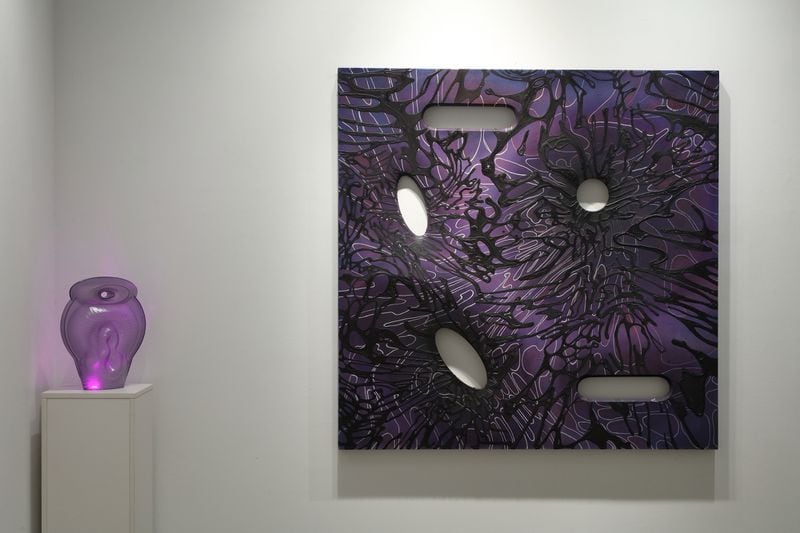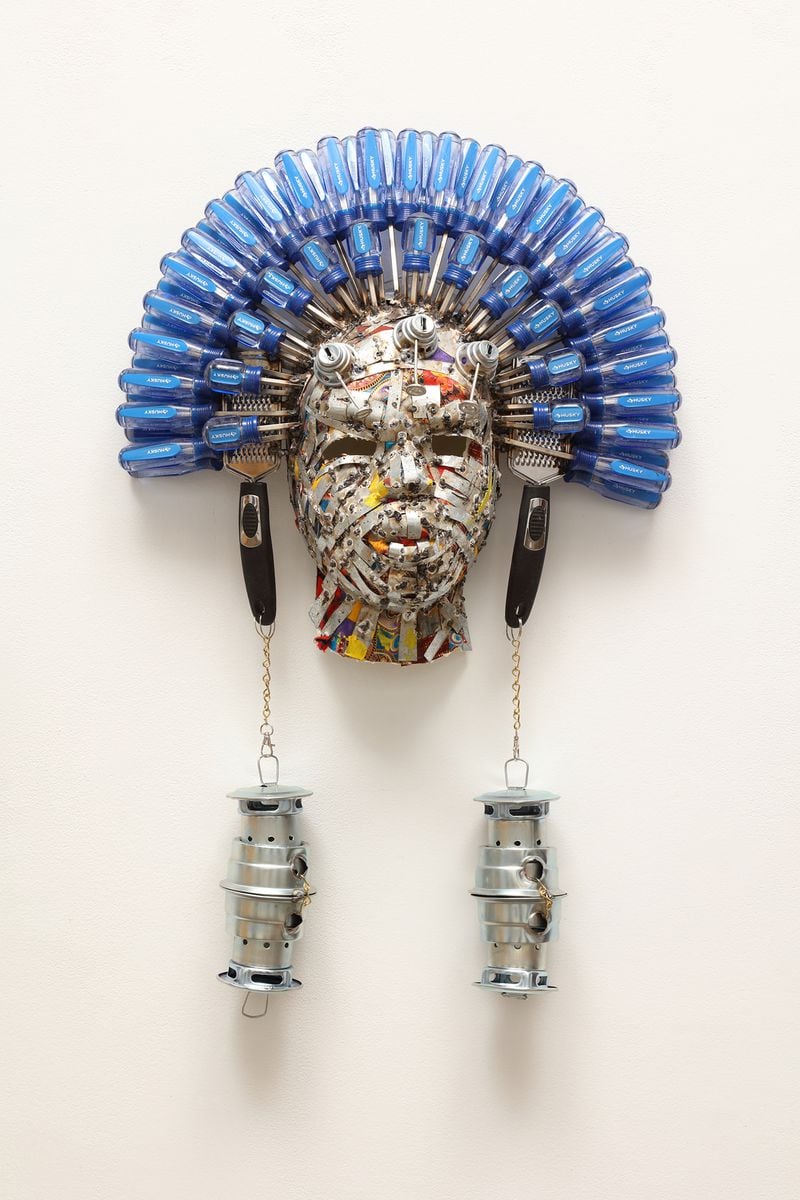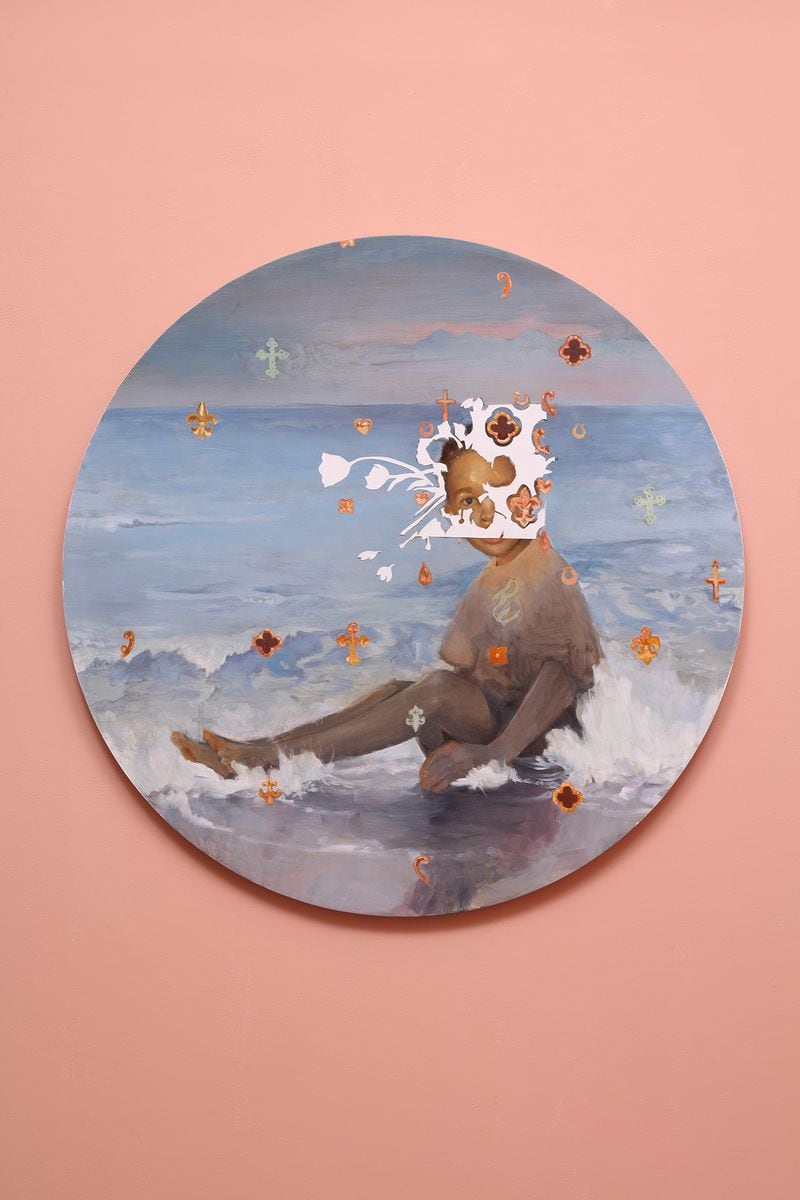
If you had any doubt about Atlanta artists’ ability to hold their own next to national or global talent, “In Unity, as in Division” at Johnson Lowe Gallery would quickly erase them.
The group show features seven Atlanta artists — Demetri Burke, Danielle Deadwyler, Leia Genis, Wihro Kim, Masela Nkolo, Sergio Suárez, and Ellex Swavoni — working with materials from paint to found objects to fabric. The artists were invited to create their own self-contained solo shows for the exhibition and each creates a definite mood and sensibility in the space they are given. But as is natural for artists all drinking the same water, going to the same exhibitions and often in conversation with each other, there are crossovers that only intensify the feeling that Atlanta’s artists are an important part of a national conversation.
Often incendiary, mystical and monumental, the works on view are striking for their self-assurance and assertive point of view. Any one of the artists could command a solo show but benefit here, from certain affinities, including an approach to time that feels expansive, moving from the prehistoric to the futurist.
Two of the standouts are Sergio Suárez and Danielle Deadwyler, both of whom create work that feels monumental in vision and scope. Working in ink, oil paint and pastel, Suárez creates large-scale pieces for “The Substantiation of Time” that feel like renderings of ancient myths or primal scenes. Like European history paintings cross-pollinated with cave drawings, his spectral figures on paper, wood, canvas and muslin are portals to another dimension. There are vague scenes of violence and sacrifice, strange animals and humanoid figures glimmering like apparitions from within his black surfaces. The scenes are terrifying and beguiling in their ambiguity.
Painter Wihro Kim creates a similar tension between abstraction and representation in his complex, layered canvases you seem able to dip a hand into with their compelling illusion of depth.
Impressively talented in two realms, Deadwyler is an actress known for her star turn in “Till” and roles in “Atlanta,” “The Harder They Fall” and “Station Eleven.” She is also a shockingly self-assured contemporary artist who harkens back to influential feminist artists like Hannah Wilke and Adrian Piper in “Enstasy of Rebellion” about sex work and domestic labor and woman as Other. In her video “CHOR(E)S,” Deadwyler offers a technically and conceptually sophisticated rendering of 21st century gender roles defined by an electric current of sublimated rage. The unnerving video set to a distorted track of the artist, her face hidden by flowing hair, performs a series of repetitive, herky jerky gestures, like a short-circuited robot. Her settings are domestic battle zones: bedrooms and dining rooms where dramas of domesticity play out.
Her female figures are terrifyingly emptied of humanity, as in a suite of 30 drawings, “Idiolects,” pinned to the wall where female faces are obscured with an array of increasingly disturbing masks.
Celebratory and visionary, Ellex Swavoni’s sculptural wall pieces are a futurist view of womankind. Funky, weird and decidedly playful like some lady-power take on outer space, Swavoni’s sculptures make a connection between the cosmos and the female body in trippy purple and black, a beckoning slit in the canvas urging you to plunge in.
Totemic, fierce, Deadwyler and Swavoni’s works bear some resemblance to the masks created by artist Masela Nkolo in “Safari” which blend the ancient and the modern into disconcerting new forms. Originally from the Democratic Republic of Congo, Nkolo often uses his childhood experiences in Africa as a starting point. Using a Home Depot litany of found objects — screwdrivers, cheese graters, door springs, oil lanterns and other metal bits and bobs, Nkolo’s strange figures are both familiar and uncanny, prehistoric and postmodern and reference an African inventiveness in creating novel, new works out of consumer detritus.
An exceptionally skilled painter, Demetri Burke brings something elegiac and romantic to his paintings, nowhere more so than in the gorgeous reclining figure in “at the end of the United States” in oil and copper leaf on panel. A young father shields his eyes from the sun and cradles his daughter in his arms. Copper crosses, trefoils and fleur de lis shower the figures like flowers strewn in the path of a conquering hero. As with Leia Genis’ cyanotype figures printed on cotton, and suggesting burial shrouds, there is something memorializing in both artists’ approach. In “As Her Body Sways” Genis’ figures shimmer and come in and out of focus, haunting apparitions.










